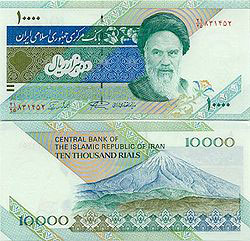Azerbaijan, Baku, July 16/ Trend F.Karimov/
In an unprecedented decision, the administration of President Mahmoud Ahmadinejad has instructed the banking sector to allocate 650 trillion rials (about $26 billion) to job creation plans in the current Iranian calendar year, which began on March 21, the Mehr News Agency reported.
Meanwhile the government had paid just 270 trillion rials to job creation plans during the years 2006-2012.
State banks and private banks have been required to allocate 430 trillion rials and 70 trillion rials, respectively. Moreover, 100 trillion rials will be allocated by the National Development Fund and 50 trillion rials will be paid as interest-free loans.
The number of jobless people in Iran has increased by 270,000 over the past eight years (March 2005-March 2013).
According to statistics released by the Statistical Center of Iran, the number of the unemployed rose from 2,674,866 in Iranian calendar year 1384 (March 2005-March 2006) to 2,944,158 in Iranian calendar year 1391 (March 2012-March 2013).
This is while some 6 million workers in Iran receive the lowest salary set by the labor ministry.
According to the International Monetary Fund, Iran's economy shrank by 1.9 percent in 2012. The value of the country's currency, the rial, also fell by 40 percent in 2012. According to the Central Bank of Iran, the country's inflation was over 30 percent in the previous year.
In April, Iran's deputy labour minister Mohammad Taghi Hosseini said that the international sanctions imposed on Iran have affected the working conditions in the country, however due to proper management there have been no serious problems yet.
Hosseini said that conditions for work in Iran are good, and the support system for workers is well developed.
"We have an active Decent Work Country Programme, that is currently being implemented," he said.
"The social security and social welfare cover all workers, including those working temporarily. We use the three-sided mechanism, which is one of the internationally-approved standards. The government is not the only one which decides on the salary of the workers, but the employers and employees as well," he said.
The unemployment rate in the country is projected to fall by one percent each year during 2013-2015.
A member of Iran's high council of employment Davoud Qaderi said that the council had developed a package of investment plans, worth 1.96 trillion rials (some $160 billion), aimed to create 1.1 million new jobs this year.
The unemployment rate in Iran stood at 12.3 percent last year, showing a 1.2 percent fall compared to its preceding year, the statistical center of Iran reported.
Some 400,000 people were employed in Iran last year, which ended on March 19. The government announced over 1.6 million job opportunities were created last year, the Mehr News Agency reported on June 12.






